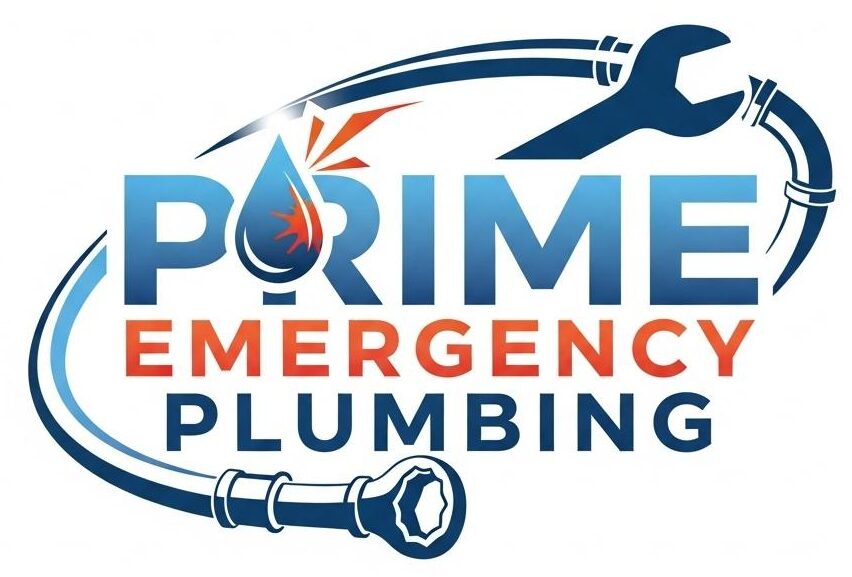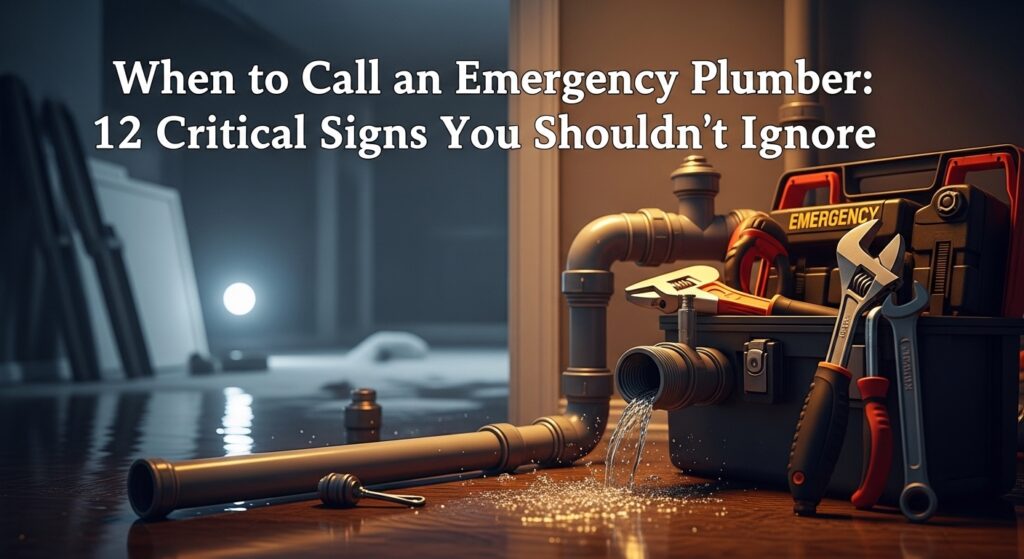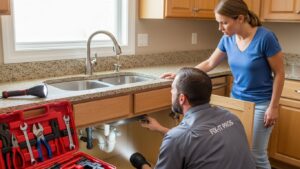Introduction: Why Knowing When to Call an Emergency Plumber Matters
Every homeowner eventually faces a plumbing problem—but not every leak or clog requires a 3 a.m. call to a professional. However, recognizing when to call an emergency plumber can make all the difference between a manageable issue and a disaster that costs thousands to repair. Plumbing emergencies can lead to flooding, mold growth, and even property damage if not addressed promptly.
This guide will help you understand the situations that qualify as true plumbing emergencies, how to respond safely, and preventive measures to protect your home in the future.
Understanding What an Emergency Plumber Does
The Difference Between Regular and Emergency Plumbing Services
Regular plumbers handle scheduled maintenance or minor repairs during standard business hours. An emergency plumber, on the other hand, is available 24/7 to handle urgent issues—like burst pipes, sewage backups, or sudden loss of water—that can’t wait until morning.
They’re trained to respond quickly, identify the root cause, and take immediate steps to prevent further damage.
How Emergency Plumbers Operate 24/7
Emergency plumbing services typically operate round-the-clock, including weekends and holidays. Most have mobile units equipped with advanced tools to address urgent calls right away. While these services might cost more, the quick response often prevents more expensive repairs later.
Top Situations That Require an Emergency Plumber
1. Burst Pipes Causing Flooding
A burst pipe can release gallons of water in minutes, flooding your floors and walls. If you notice water spraying uncontrollably or pooling rapidly, shut off your main valve and call an emergency plumber immediately.
2. Sewer Backups or Foul Odors
When sewage starts backing up through drains or toilets, it’s not just unpleasant—it’s a major health hazard. The stench of raw sewage means your sewer line is blocked or damaged, requiring immediate professional attention.
3. No Running Water in Your Home
If your taps suddenly stop working, the problem might go beyond your local supply. It could be due to frozen pipes, burst mains, or serious leaks. An emergency plumber can quickly locate the problem and restore your water supply.
4. Overflowing Toilets That Won’t Stop
When plunging doesn’t fix the problem and water keeps rising, turn off the water valve behind the toilet and call a plumber. Overflowing toilets can damage flooring and spread contamination.
5. Gas Leaks or Water Heater Malfunctions
If you smell gas or notice your water heater leaking, this is a true emergency. Gas leaks can be fatal, and malfunctioning heaters may explode if not handled promptly by professionals.
6. Frozen or Cracked Pipes During Winter
Cold weather can cause pipes to freeze and crack, cutting off water flow or causing leaks once thawed. Emergency plumbers have the right tools to thaw and repair frozen pipes safely.
7. Persistent Water Leaks or Low Pressure
If your water pressure suddenly drops or you hear water running behind walls, you might have a hidden leak. Left unchecked, it can cause structural damage or mold growth.
Early Warning Signs You Might Need Emergency Plumbing Help
Sometimes, plumbing problems start small. Here’s what to watch for before things get out of control:
- Strange noises like gurgling or banging in your pipes.
- Slow drains that worsen over time.
- Sudden water bill spikes without increased usage.
Addressing these early can prevent emergencies and costly repairs later.
What to Do Before the Emergency Plumber Arrives
How to Safely Shut Off Water Supply
Locate and close your home’s main water valve as soon as you notice flooding or leaks. This simple step can reduce damage dramatically.
Minimizing Water Damage with Quick Fixes
Use towels, buckets, or a wet vacuum to contain water spread. If it’s safe, unplug nearby electrical devices to avoid hazards.
Preparing Your Home for Plumber Access
Clear pathways to the affected area and remove valuables or obstacles to speed up the repair process once the plumber arrives.
How to Choose a Reliable Emergency Plumber
Checking Credentials and Experience
Always verify that your plumber is licensed, insured, and experienced in handling emergencies.
Reading Reviews and Response Times
Look for companies with excellent ratings and fast response times—especially if they serve your local area.
Asking About Pricing and Warranties
Emergency plumbing can be costly. Ask upfront about hourly rates, after-hours fees, and warranty terms.
Preventive Tips to Avoid Plumbing Emergencies
- Schedule regular inspections of your pipes and fixtures.
- Avoid pouring grease or solids down the drain.
- Insulate pipes before winter.
- Replace aging water heaters before they fail.
These preventive actions can save you time, stress, and money in the long run.
Cost of Hiring an Emergency Plumber
Emergency plumbers typically charge $150–$400 per hour, depending on location and time of day. Major repairs or replacements may increase the total cost. To save money:
- Compare service rates beforehand.
- Join maintenance programs that offer discounts.
- Fix minor leaks early before they escalate.
For average pricing and comparison, you can check HomeAdvisor’s plumbing cost guide.
FAQs: When to Call an Emergency Plumber
u003cstrongu003eWhat qualifies as a plumbing emergency?u003c/strongu003e
Anything that risks water damage, sewage exposure, or safety—like burst pipes or gas leaks—requires immediate attention.u003cbru003e
u003cstrongu003eCan I handle minor leaks myself?u003c/strongu003e
Yes, small drips can often wait until normal hours, but if it’s flooding or affecting multiple fixtures, call a pro.u003cbru003e
How fast do emergency plumbers respond?
Most arrive within u003cstrongu003e30–60 minutesu003c/strongu003e, depending on distance and demand.u003cbru003e
u003cstrongu003eAre emergency plumbing services more expensive?u003c/strongu003e
Yes, after-hours services usually cost more due to immediate response and availability.u003cbru003e
How can I prevent plumbing emergencies?
Routine maintenance, seasonal checks, and using strainers in drains all help reduce risk.u003cbru003e
u003cstrongu003eShould I have a plumber’s contact ready in advance?u003c/strongu003e
Absolutely—having a trusted plumber’s number handy saves valuable time in an emergency.
Conclusion: Act Fast and Protect Your Home from Major Damage
Plumbing emergencies rarely come with a warning, but knowing when to call an emergency plumber ensures you act quickly before damage worsens. Whether it’s a burst pipe or an overflowing toilet, a prompt response keeps your home safe, dry, and functional.




